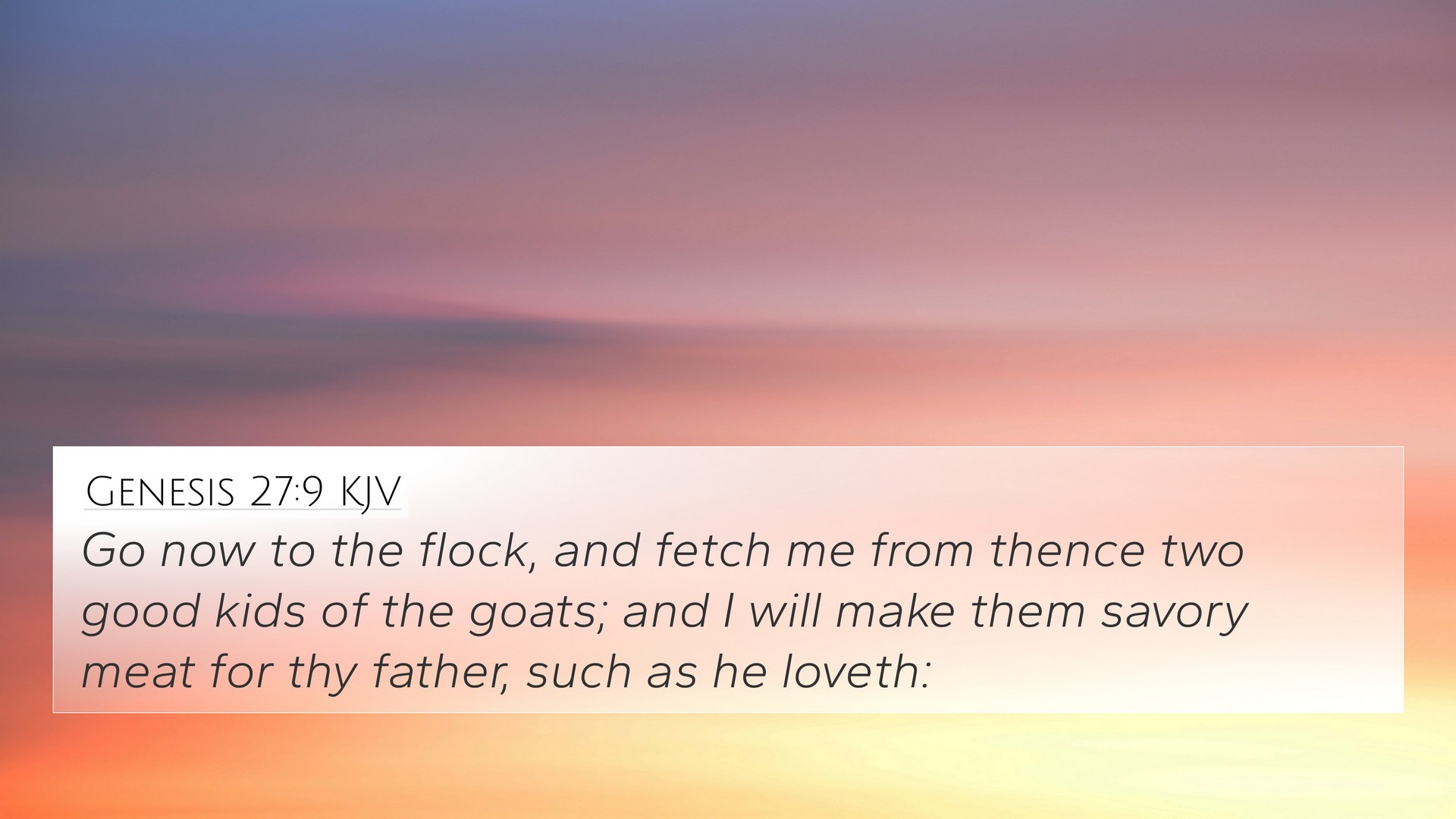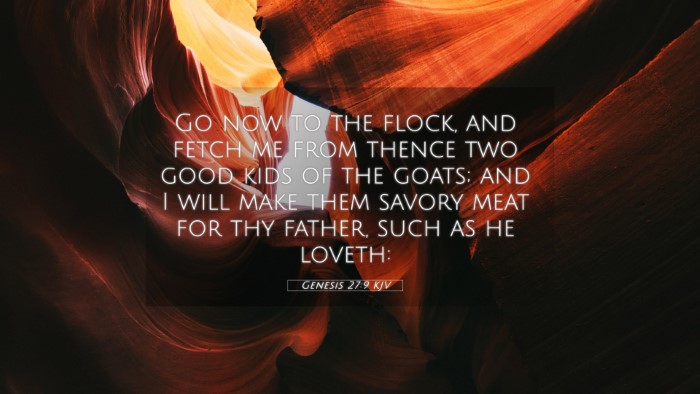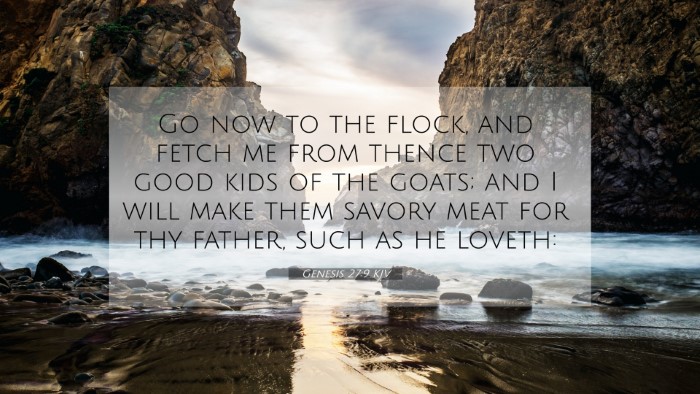Understanding Genesis 27:9
In Genesis 27:9, the instruction to "Go now to the flock and bring me two choice kids of the goats; and I will make savory food from them for your father, such as he loves," highlights a significant moment in the narrative of Isaac and Rebekah's family. This verse unveils the complex dynamics of parental favoritism, deception, and the fulfillment of God’s promises.
Verse Analysis
Matthew Henry examines this verse within the context of the familial relationships that create tension in the story. Here, Rebekah conspires to help Jacob deceive Isaac, pointing to issues of trust and morality:
- Parental Favoritism: This incident showcases the favoritism of Rebekah towards Jacob, which contrasts sharply with Isaac's preference for Esau.
- Deception: The act of preparing the food is part of a deceptive plan that ultimately serves to fulfill God's prophecy regarding who would inherit the blessing.
- God's Sovereignty: Even amid human deception, the event unfolds according to divine sovereignty and the unfolding of prophesied outcomes.
Albert Barnes adds another layer by discussing the thematic implications of the verse:
- Significance of Offerings: The choice kids symbolize the importance of offering the best to God, reflecting the care taken by Jacob and Rebekah to prepare a meal Isaac would appreciate.
- Family Struggles: The verse signifies the brokenness within the family, hinting at future consequences that arise from their actions.
Adam Clarke emphasizes the practical aspects of the verse:
- Culinary Skills: Clarke notes the culinary effort involved in preparing the dish, a means of exercising care for one's loved ones.
- Symbolism of the Kids: The goats represent purity and the specification of the 'choice kids' illustrates the theme of quality in offerings.
Cross-References for Genesis 27:9
This verse relates to several other scriptures, forming connections and themes across the Bible:
- Genesis 25:23: “Two nations are in your womb...” – The prophetic nature of the siblings' rivalry.
- Genesis 27:1-4: The background preparation of Isaac seeking a meal from Esau.
- Genesis 28:1-4: Jacob's blessing that follows the deception.
- Romans 9:10-13: Paul references the love and hate of the twins, highlighting God's purposes.
- Proverbs 10:9: Discussion on walking securely vs. walking crookedly.
- Hebrews 12:16-17: Esau selling his birthright, correlating to the importance of blessings in biblical inheritance.
- James 3:16: The outcomes of selfish ambition and disorder that stem from deceitful actions.
- Micah 3:5: A reference to deceit practiced by prophets, paralleling Rebekah's actions.
- 1 Timothy 6:10: The love of money as a root of evil relates to motivations seen in family actions.
- Genesis 31:19: Another story of deception around family dynamics, showing a broader theme of trust issues.
Thematic Connections
This verse opens a dialogue about the nature of family and trust throughout the Bible:
- Deception in Family Relations: Genesis 27:9 is a pivotal moment showing how deceit can fracture familial bonds, a theme echoed in many biblical narratives.
- God’s Purpose through Human Actions: The passage relates to how God's plans prevail despite human shortcomings, indicating His ultimate control over events.
Conclusion
The narrative encapsulated in Genesis 27:9 serves as a reminder of the intricate web of human relationships and decisions, and their ramifications in the divine tapestry of God's plan. By exploring cross-references and thematic connections, we can deepen our understanding of this complex story.




